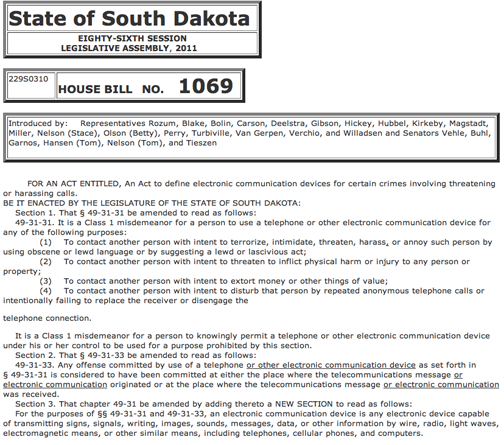I wonder if ‘1984’ is required reading for SF school district students?
It seems administrators have read the classic many times, and are using it for a policy handbook;
The local teachers union opposes a proposed policy that would allow Sioux Falls School District administrators to search employees’ private cell phones, purses and vehicles for suspected violations of district policy.
A school law expert from Ohio said the policy “certainly breaks new ground” and could open the district up to a lawsuit.
COULD?! This is a lawsuit waiting to happen.
But if challenged in court, a judge considering whether the search was appropriate would balance the employee’s Fourth Amendment rights against those of the district.
And don’t forget about the 1st and 5th amendments. I can’t believe the district is even considering this policy, oh, that’s right, administrators and board members allow lawyers to make all their decisions for them, very ignorant lawyers.




